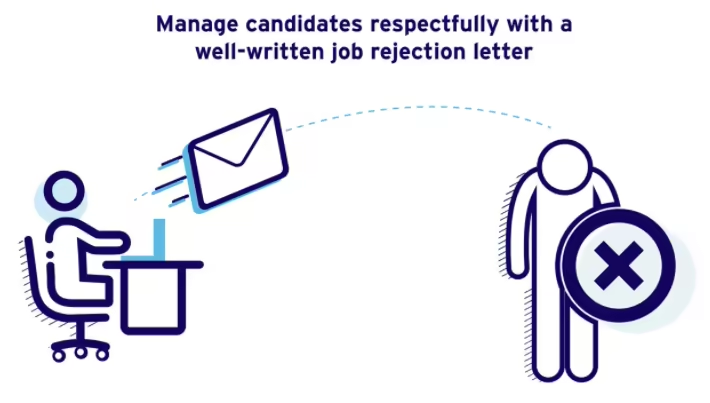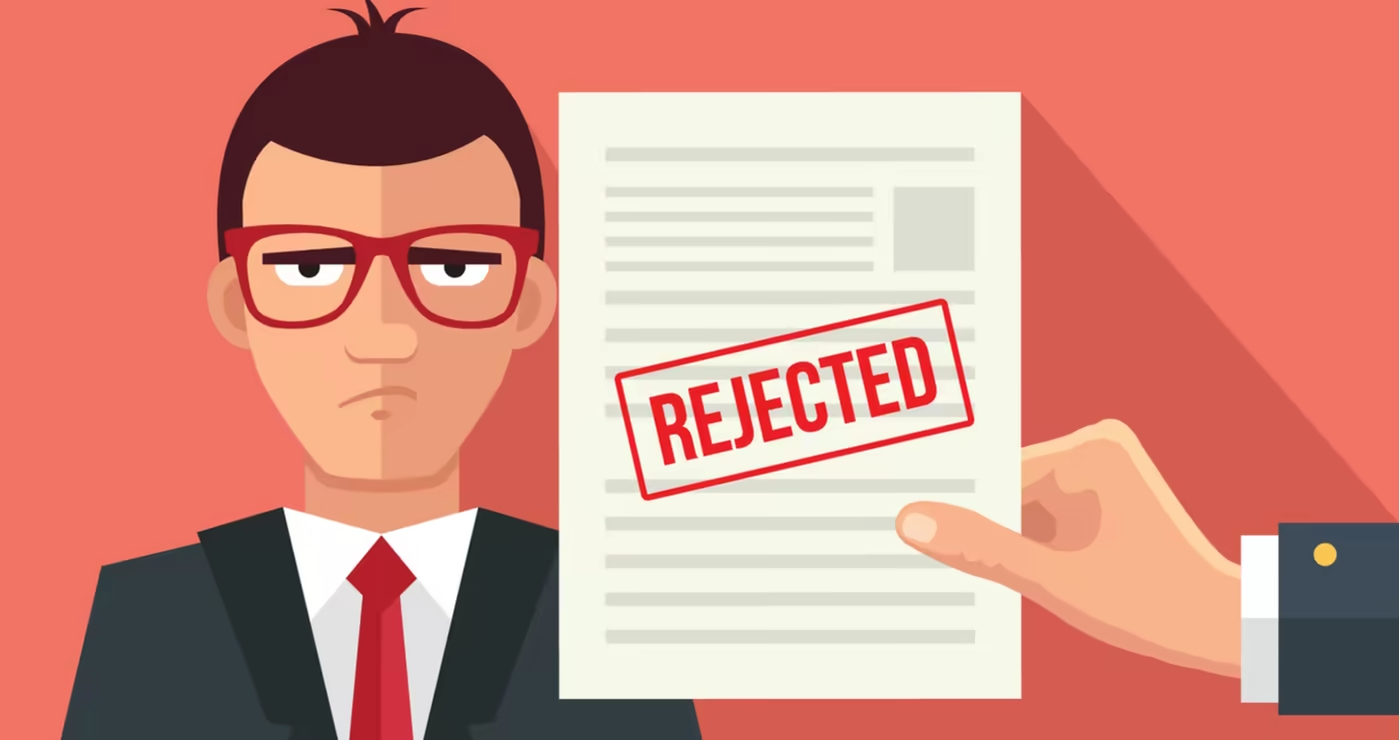Overview of Rejection Letters
Rejection letters are a polite way of informing candidates that they did not get the job. Imagine you’ve had a job interview and you think everything went well, but you haven’t heard anything in days or weeks. Companies frequently abandon job applicants, and it’s one of the most common grievances among job searchers. Rejection letters are a polite way of informing candidates that they did not get the job. Imagine you’ve had a job interview and you think everything went well, but you haven’t heard anything in days or weeks. Companies frequently abandon their applications, and it’s one of the most common grievances among job searchers.

You don’t have to break up with a candidate just because they weren’t chosen for a specific job. This candidate may be suitable for another position, and you should keep them in your talent pool because you know they are interested in the firm. As a result, having a good rejection strategy makes sense. Even recruiters with a massive volume of applicants can use the templates below to notify candidates in a kind and timely manner.
Consider tailoring a rejection letter to your employer’s brand if you want to go the extra mile. These tips will assist you in creating a letter that is both clear and useful to your candidates. Take a look at these five tips for writing thoughtful rejection letters.
- Thank the Candidate
Recognize your applicants’ efforts to ensure that they feel appreciated. Applicants spend a lot of time researching your firm and customizing their cover letters and resumes to the job requirements. Remember that interview preparation takes time, and some of these candidates may have taken time off from their current jobs to meet with your hiring team. A simple “thank you” can go a long way toward providing a positive candidate experience for rejected applications. If you don’t inform these job seekers, your employer brand will suffer and diminish your talent pool.
- Leave the Door Open
Silver medalists should not be discarded from your skill pool. Even if the candidate didn’t meet the requirements for today’s position, there are always other openings down the road. Tell this candidate if you want them to apply for more positions in the future. A job seeker’s confidence can be harmed by a rejection (no matter how pleasant), so they may not apply to future positions without encouragement. Let them know that they were one of the top candidates and that you would like to hear from them again in the future, even if they were not chosen. They won’t appreciate being left in the dark.
- Do Not Give False Hope
When interacting with rejected candidates, transparency should be the primary concept. Isn’t that how you’d like to be handled? If you don’t know if a position will open up soon, don’t tell a prospect you’ll contact them or that you’ll be in touch. You could think this is an excellent way to let a candidate down quickly, but if you don’t intend to follow through on these promises, you’ll end up with a bigger letdown and a worse candidate experience. So, before you make a promise, make sure you have the financial means to keep it. You may set up calendar reminders or create an email nurturing campaign if you want to contact them.
- Try to Give a Reason
It’s difficult to deliver bad news, but it’s critical to be open with a candidate about their position. Let them know as soon as possible if they are no longer being considered. If they have a gap in their resume that prevents them from getting the job, the position might have required extensive Excel skills, which they failed to demonstrate. Candidates value actionable input that will help them improve their applications in the future. They could, for example, pursue an excel certification. The specific evaluation will tell volumes about your company’s ideals, and customization may still be done efficiently with a template like the one below.
- Identify Strengths
This is particularly true for candidates who have gone through multiple rounds of interviews. After such an extended period, the candidate is entitled to personalized feedback. So why not lift their spirits by emphasizing some of the outstanding attributes that have made them such a formidable contender? If you invited the prospect in for an interview, you’ll probably want to keep them in your talent pool, and favourable comments might help you do that. In their next application, the candidate might use this feedback to focus on their strengths.
- Inform Them as Soon as Possible.
Many companies prefer to wait until they’ve identified or hired the best applicant before informing other contenders that they won’t continue the process. That is not something you should do. Let the individual you’re interviewing or reviewing know as soon as you realize they’re not the greatest fit for your team.
You now have a better understanding of what constitutes a good rejection letter.
Here is a starting point for you to work with:
Samples of Rejection Letters:
Sample Letter 1:
Dear [Name]
Thank you for taking the time to talk to us about the employment opportunity [insert job title].
We regret to tell you that your candidacy for this position has been declined by [organization]. Despite your outstanding qualifications, the selection process was quite competitive, and we have opted to go forward with a candidate whose qualifications better suit our needs at this time. We appreciate your interest in [organization] and wish you continued success in your future endeavours.
Regards,
Name [Last Name]
Title [Job Title]
Sample Letter 2:
Subject:
Dear [Candidate Name]
I appreciate you connecting with us to talk about the [Job Title] opportunity at [Insert Organisation Name]. We appreciate your time and interest in the role.
I’m writing to let you know that the post has been filled. However, we will retain your application on file for future consideration if a suitable position becomes available.
Thank you for taking the time to meet with me.
Regards,
[Name]
[Tittle]
Sample Letter 3:
Dear, [ Candidate Name]
Thank you for applying for the role of [job title] at [company name]. We are grateful for your interest in working for our company, and we appreciate the time and effort you put into applying for our job position.
We received a huge number of applications, and after carefully examining them all, we regret that we will not be able to invite you to the next round of our selection process at this time.
Despite your impressive qualifications, we have decided to go ahead with a candidate whose expertise more closely matches our requirements for this position. However, we are grateful for your interest in our company. We hope you will remember us and apply again if you see a job opening that you qualify for in the future.
Please do not hesitate to contact me by email [insert your email address] or phone [enter your phone number] if you have any queries or require further information.
We wish you the best of luck in your future efforts, both personally and professionally.
Thank you again for your interest in teaming with us.
Warm regards,
[insert your First name and Last name]
[insert your Job Position Title]
[insert your Company’s Name]

